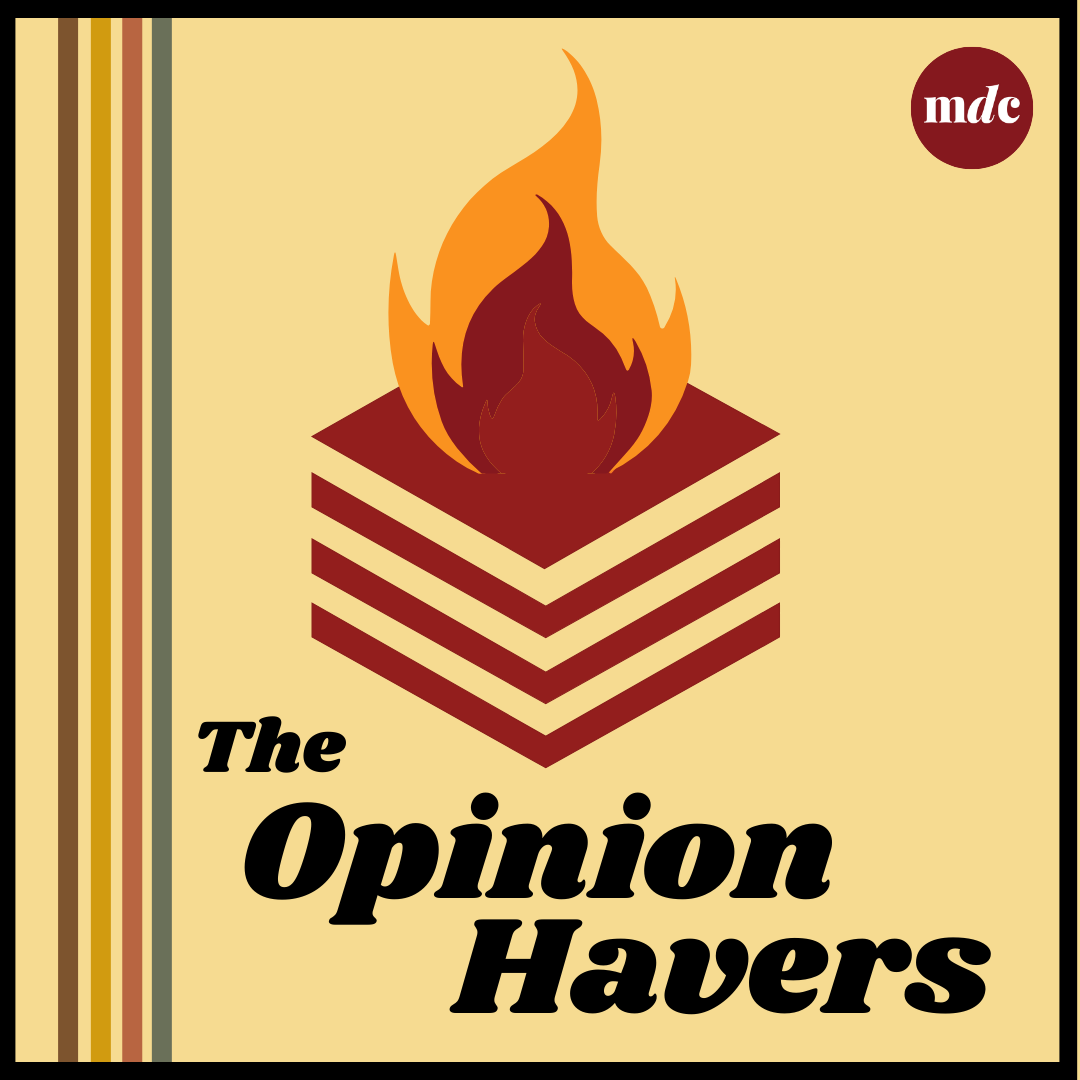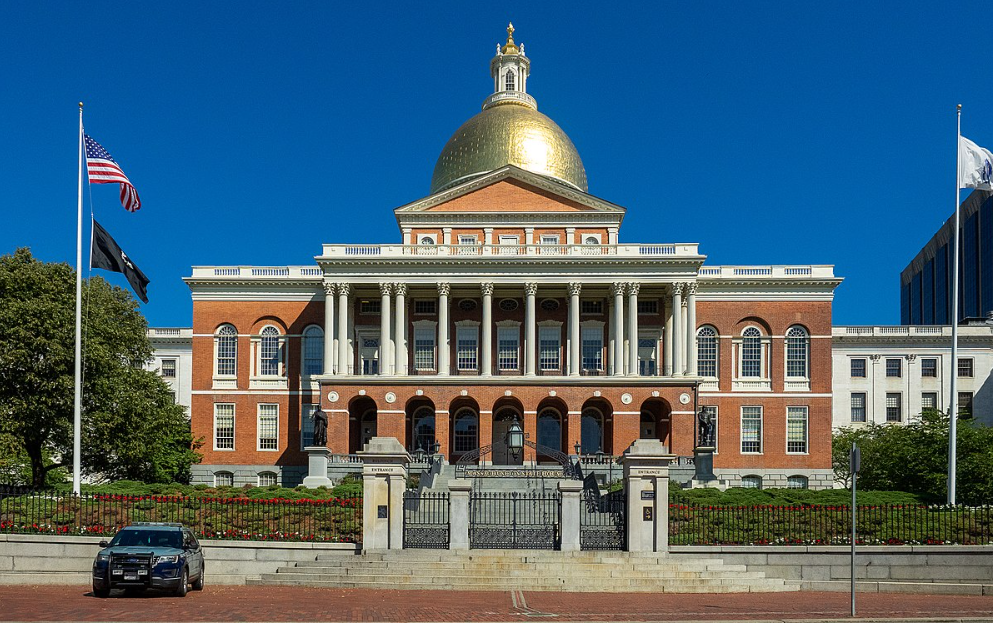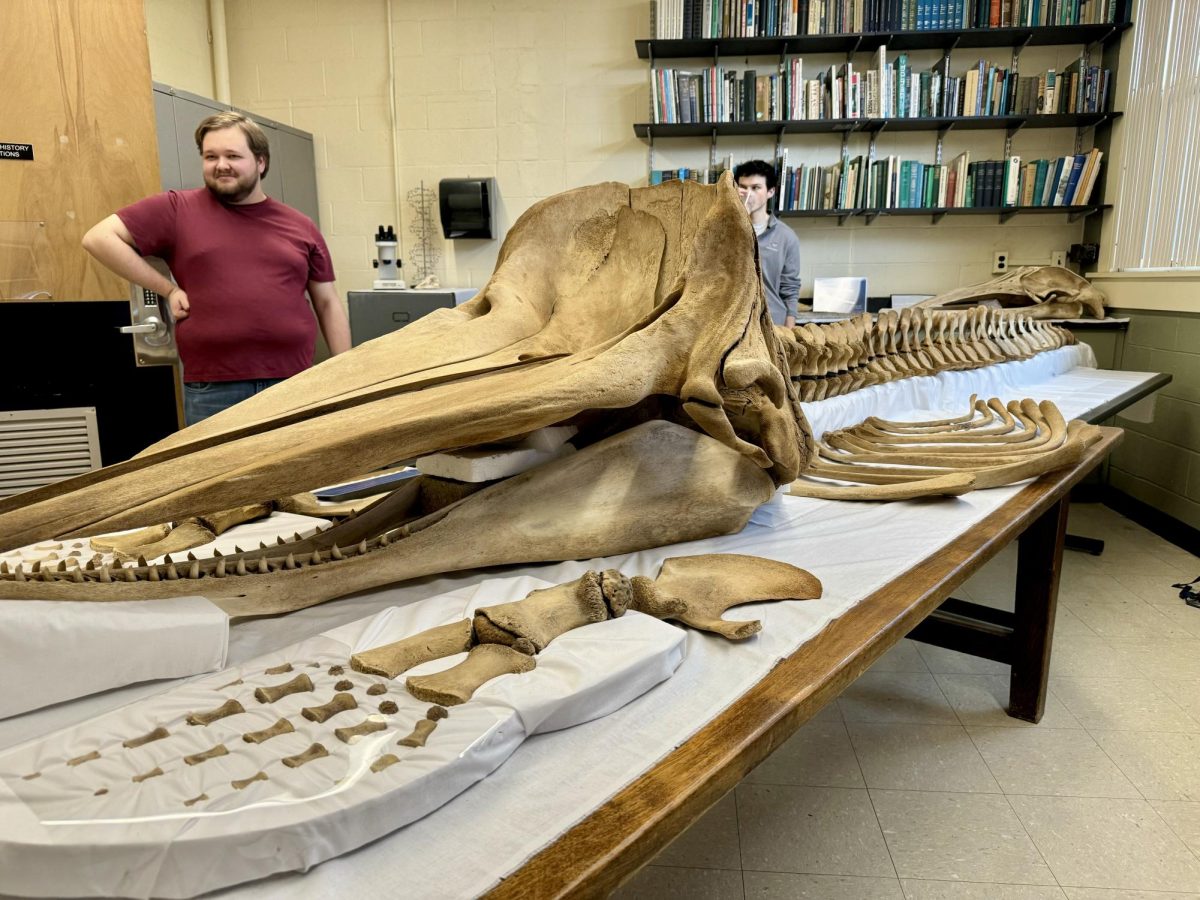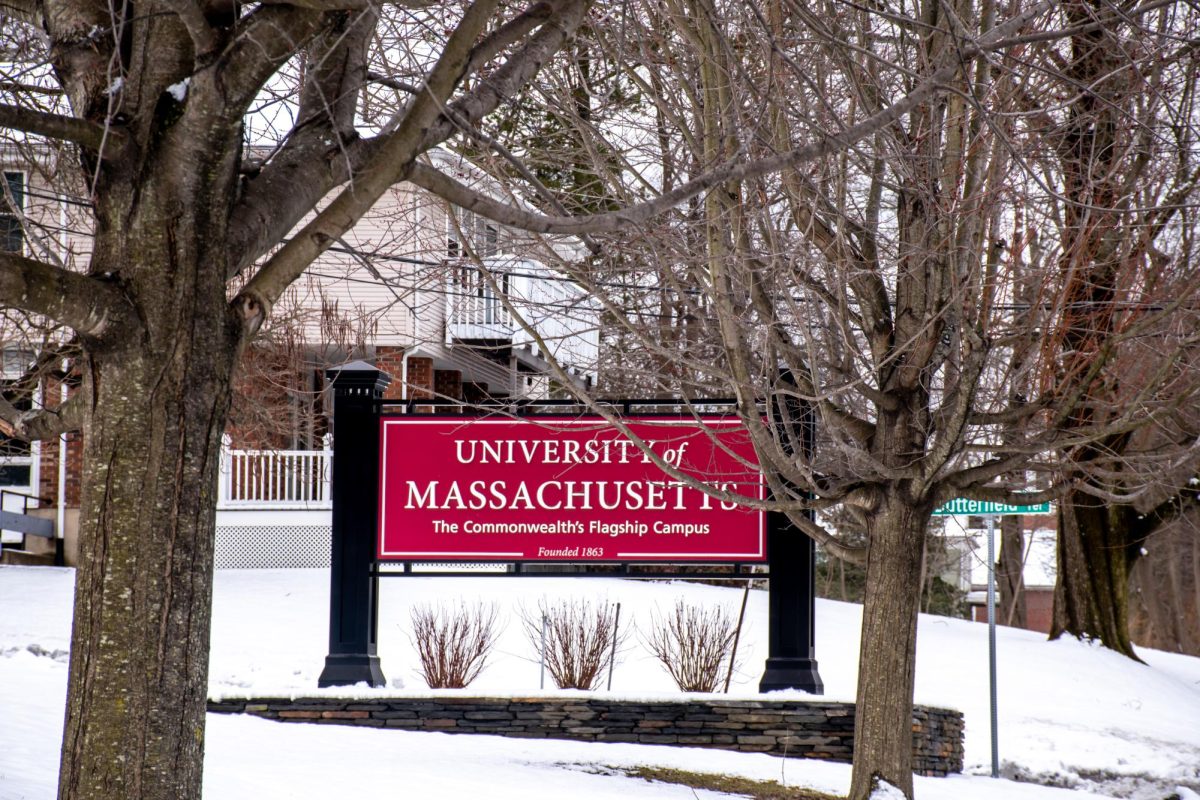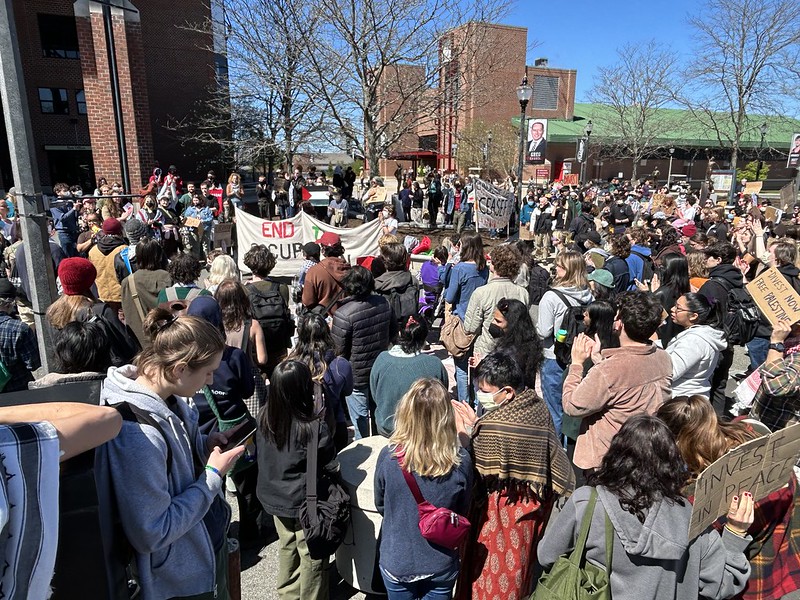Educate and activate.
A number of panel discussions and willing staff and students set to spend part of their day educating others added a dynamic to a noon-time rally that would otherwise be dearly missed.
This is the role of intellectuals, said linguistics professor Thomas Roeper. Activism, it was taught at one session, is aided by intellectual thought and academic reality.
We are all intellectuals. As we pursue our degrees – whether in the humanities, the arts, the sciences or business – we are playing the role of intellectuals. As intellectuals we have been taught to think about the world around us, the scenarios we are presented with. Certainly as intellectuals we have thought about this looming war with Iraq.
As intellectuals, however, we have not been trained to act, said Roeper. We may have our theories and thoughts about current affairs, but adding these and applying them to our actions is just as important.
Students and teachers alike can act as any free person, and can protest a war, a person or an idea. Whether you consider yourself an intellectual or not, you can rally and stand up against an idea you feel is wrong. But the Books not Bombs initiative made a direct connection between the education and the action.
Yesterday there were both. For the first time that I have seen with the latest anti-war demonstrations, they were clearly connected.
The Books not Bombs campaign kicked off with a rally, an action. The rally featured thousands crowded into the Student Union. Students from Amherst Regional High School were there. Students and faculty from the University of Massachusetts were there. Certainly students from the other five colleges were there.
It was followed by discussions and presentations led by our own faculty, fellow students, graduate students and outside resources. Intellectuals like us.
For those listening to the panel discussion on creating an anti-war movement, our intellectual ability was applied to a cause, and actions for that cause were presented.
One speaker at the discussion, held later in the day in Herter, talked about his time as a student who was coming to the end of his studies at the University of Texas, and how he worried that he would find himself out of school and into the army. His message offered some hope.
Violence begets violence was his message. Years after the Vietnam War and the popular protests of the 1960s and 70s, the lessons learned and taught were still being applied.
He went on to discuss friends who chose to act out against the war by camping, in protest, on the White House lawn. Then President Richard Nixon said, after the protest, that he didn’t notice the protestors because his attention was dominated by a Washington Redskins football game.
Years later, the speaker added, Nixon revealed that his debate over the use of nuclear armaments was deterred by the popular protests he had seen. One can’t help but hope that the millions who protested worldwide have somehow stayed President Bush’s hand, even if only for a short while.
Between the appeal to our intellect, the discussions and distribution of information, and the sharing of hope, yesterday’s events added a new expansive element to the anti-war movement.
Now, more than ever, students have learned the facts and acted together in a nationwide effort to oppose a war. This is a sizeable impact even if it takes months or years for us to know it.
Scott Eldridge II is a Collegian Columnist.

